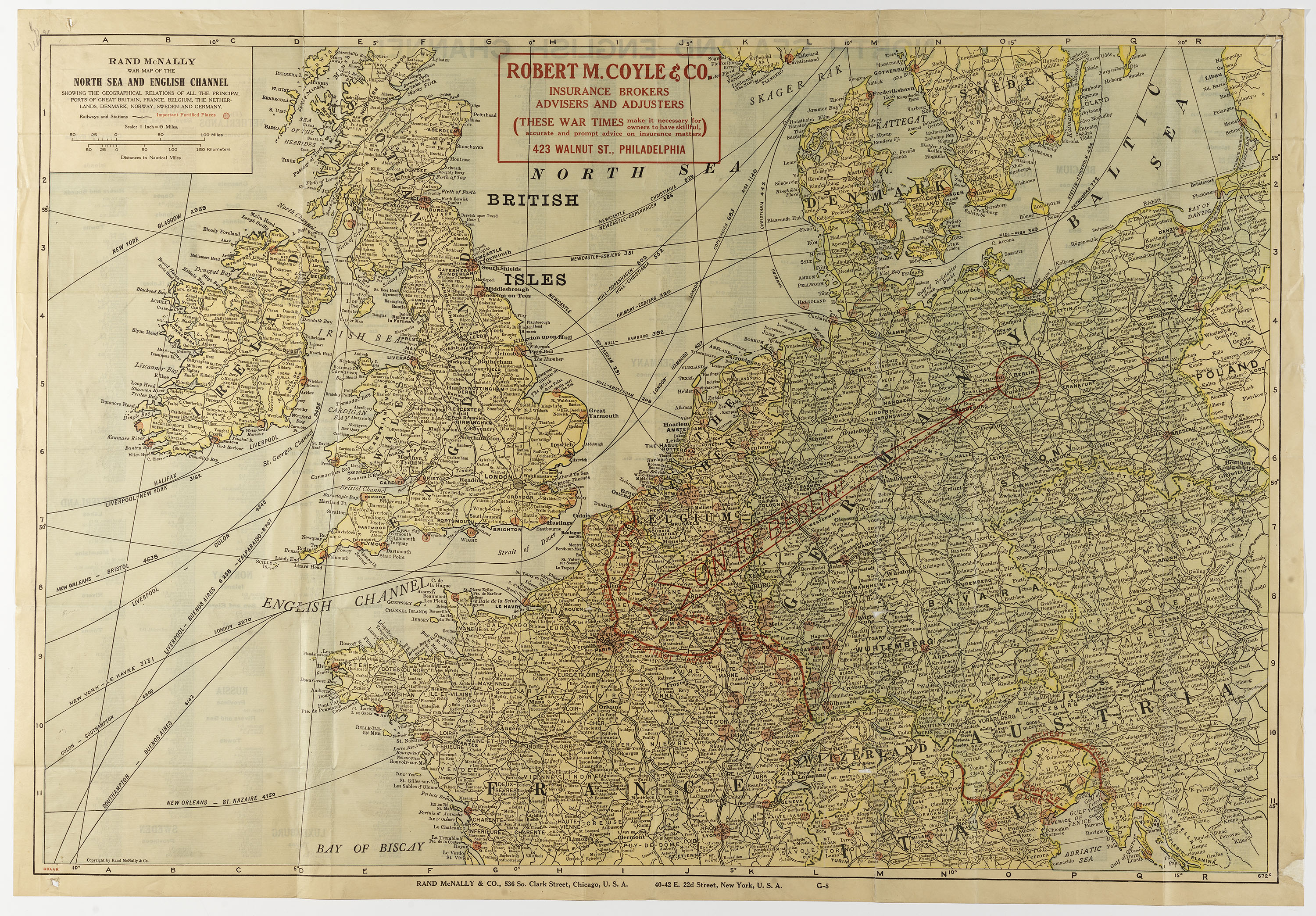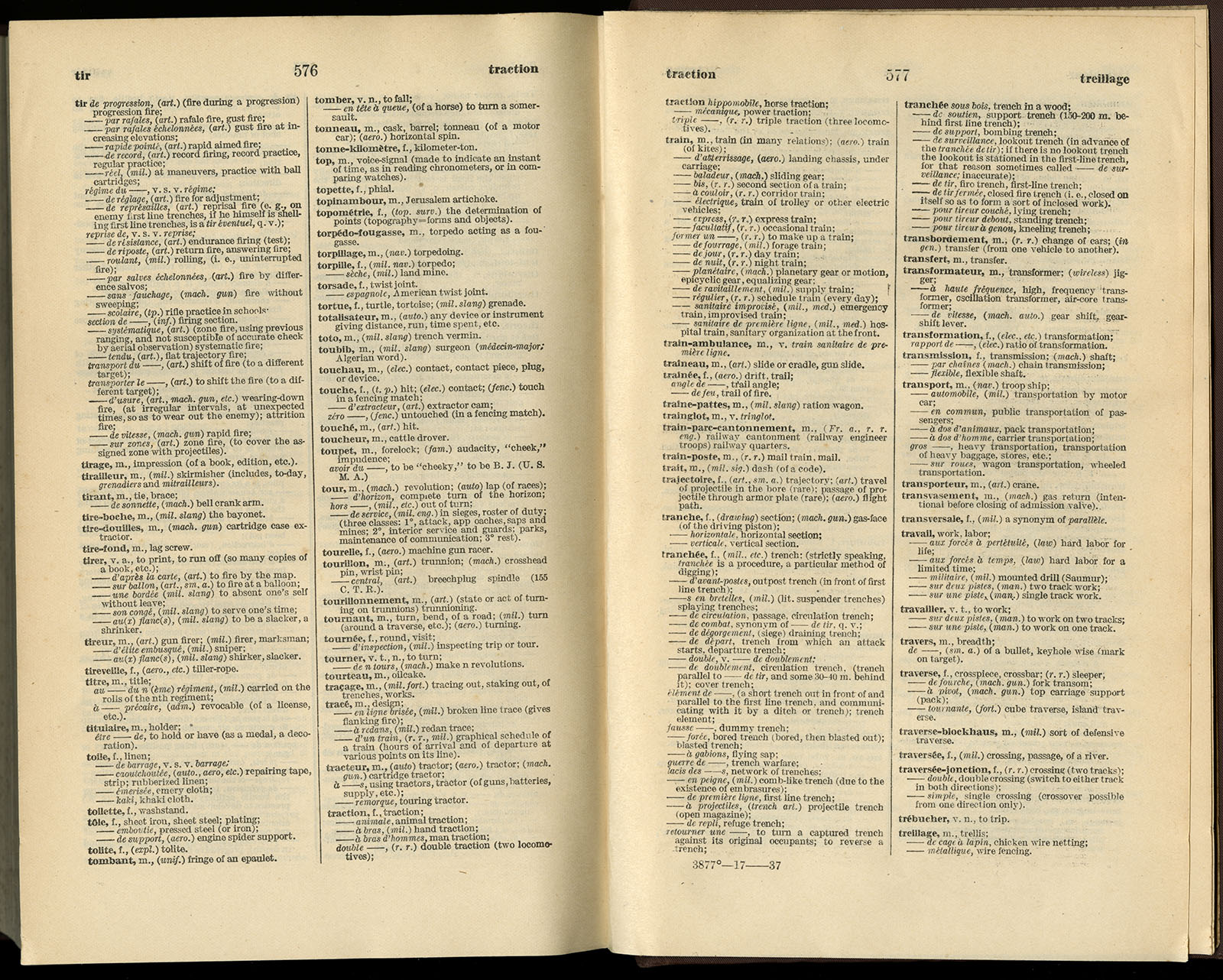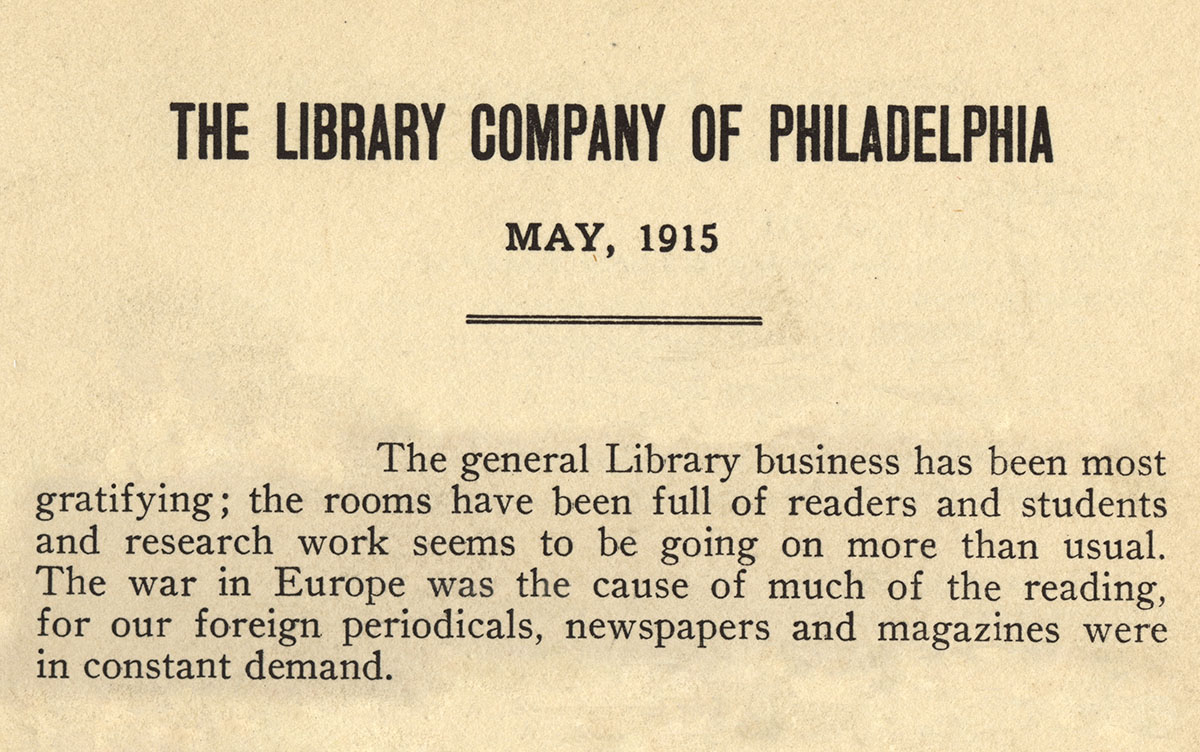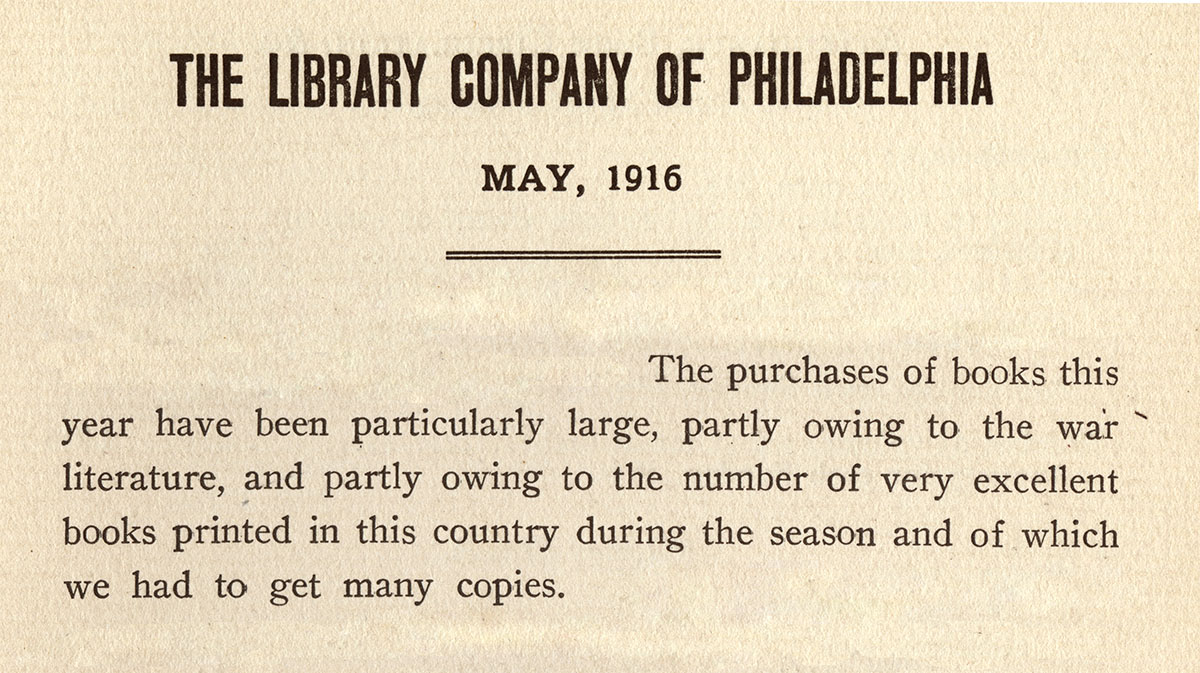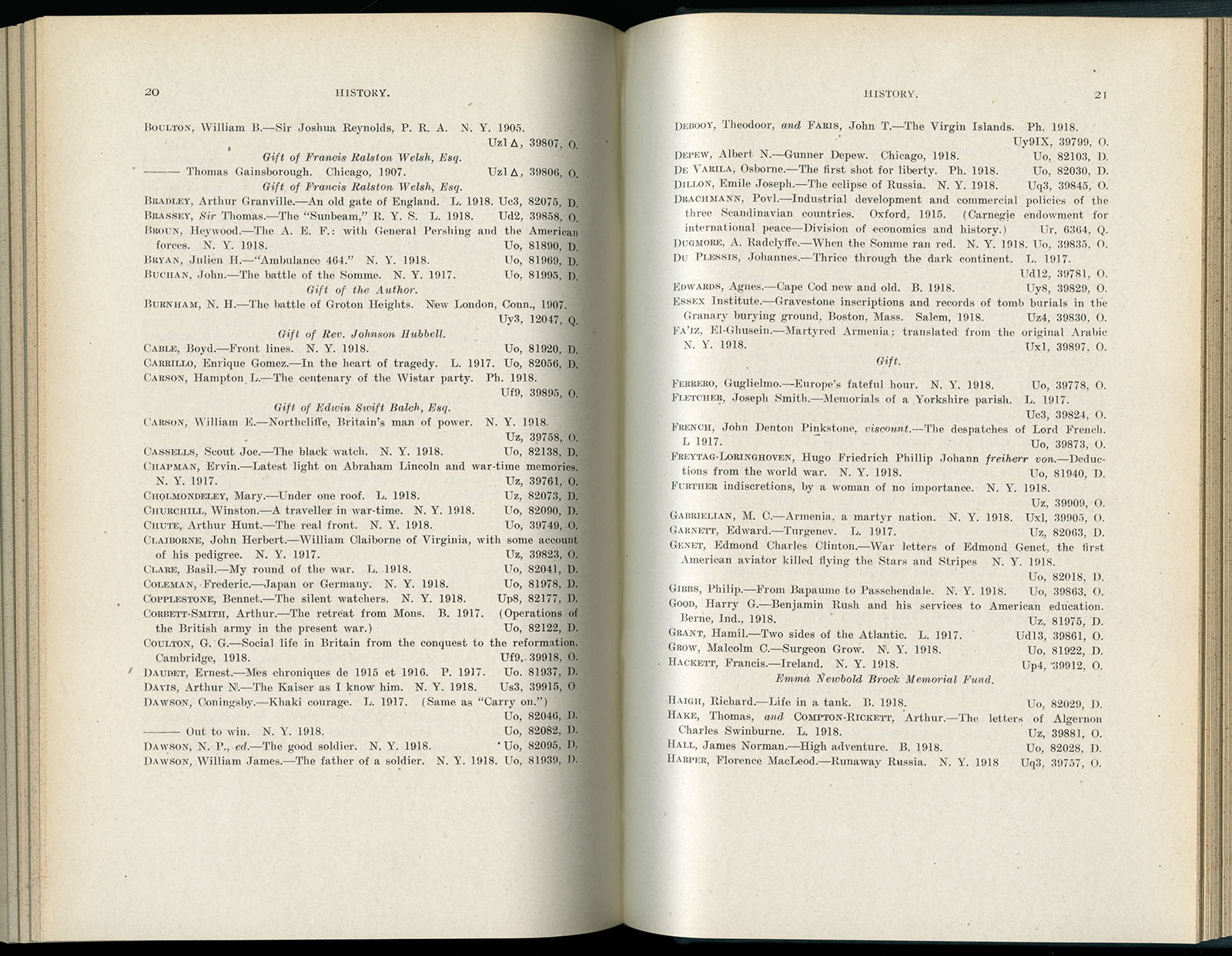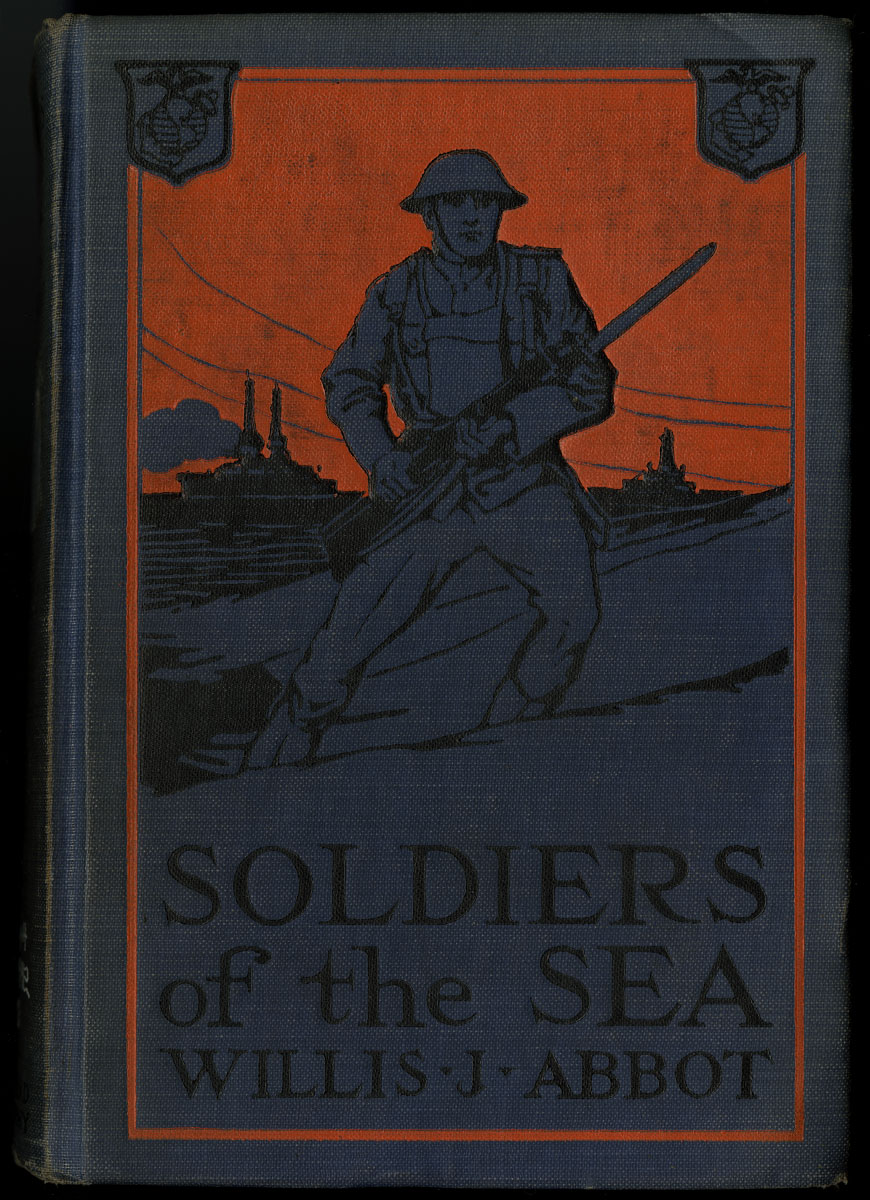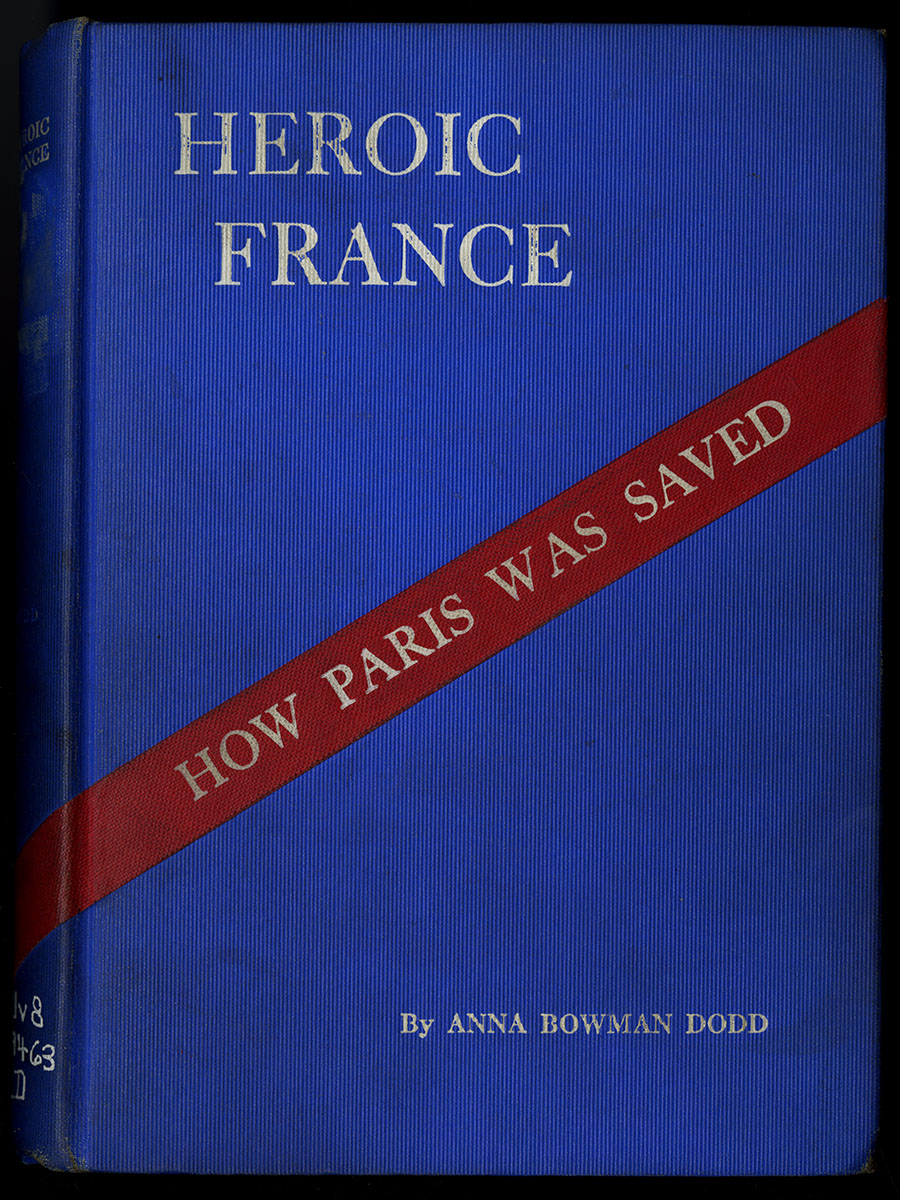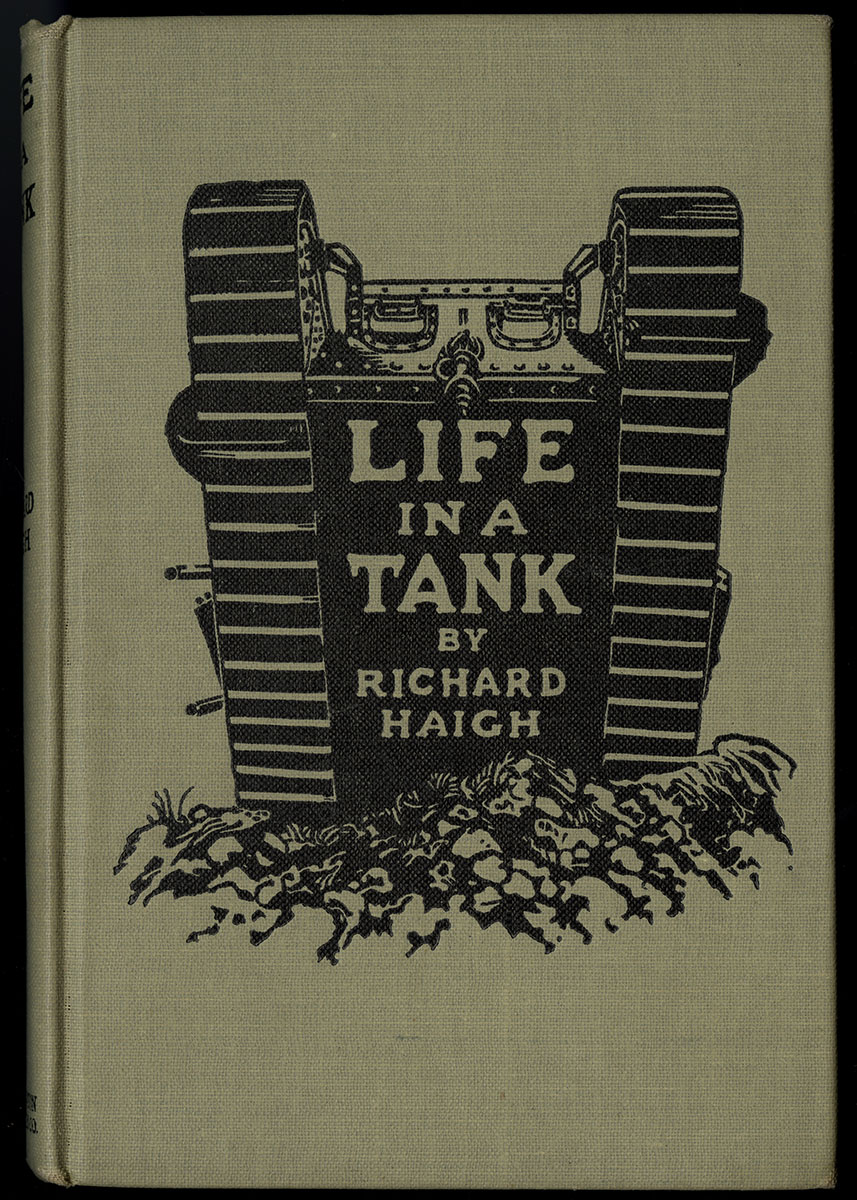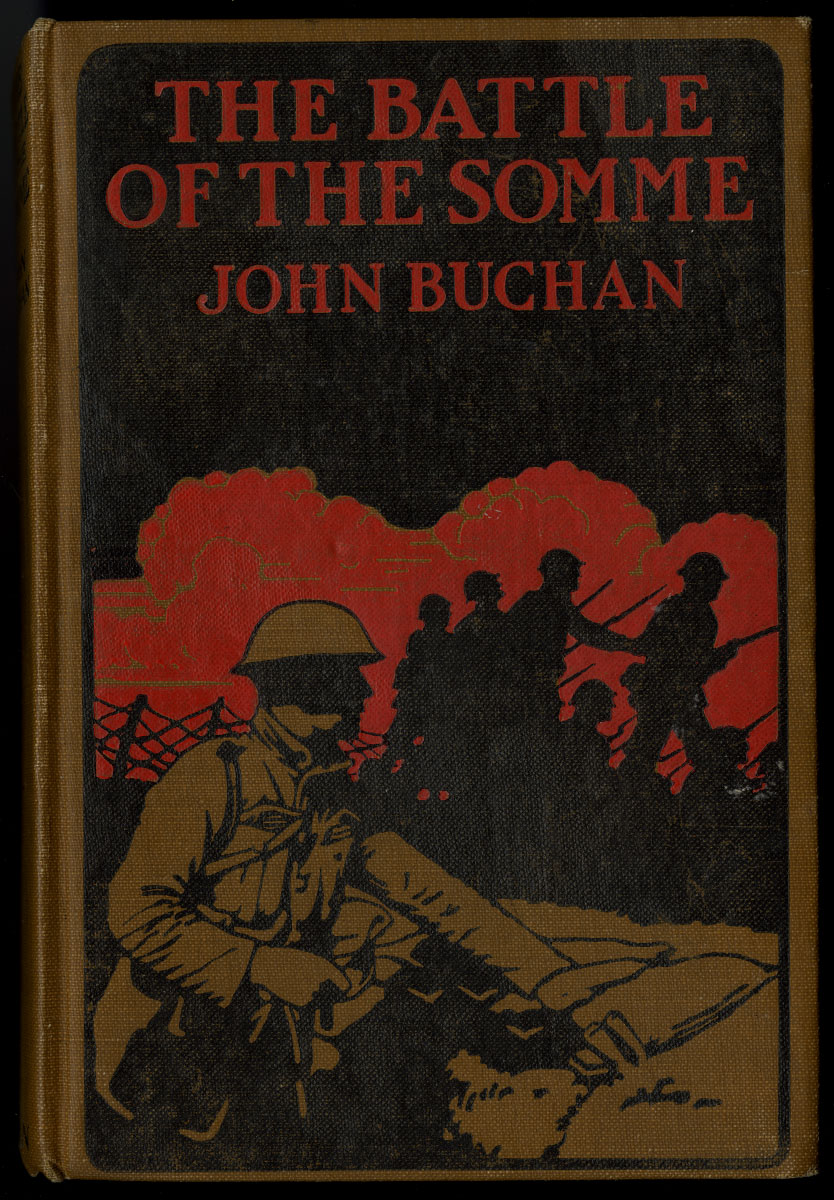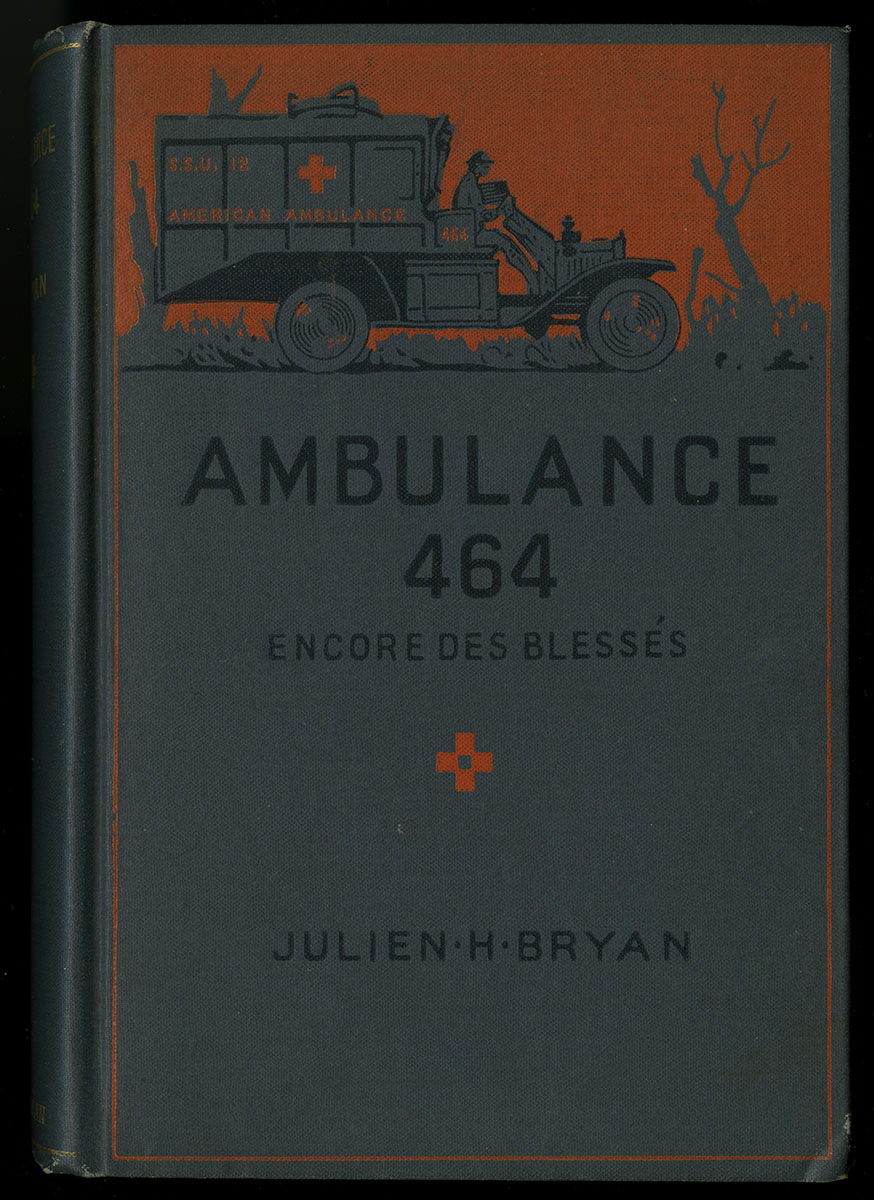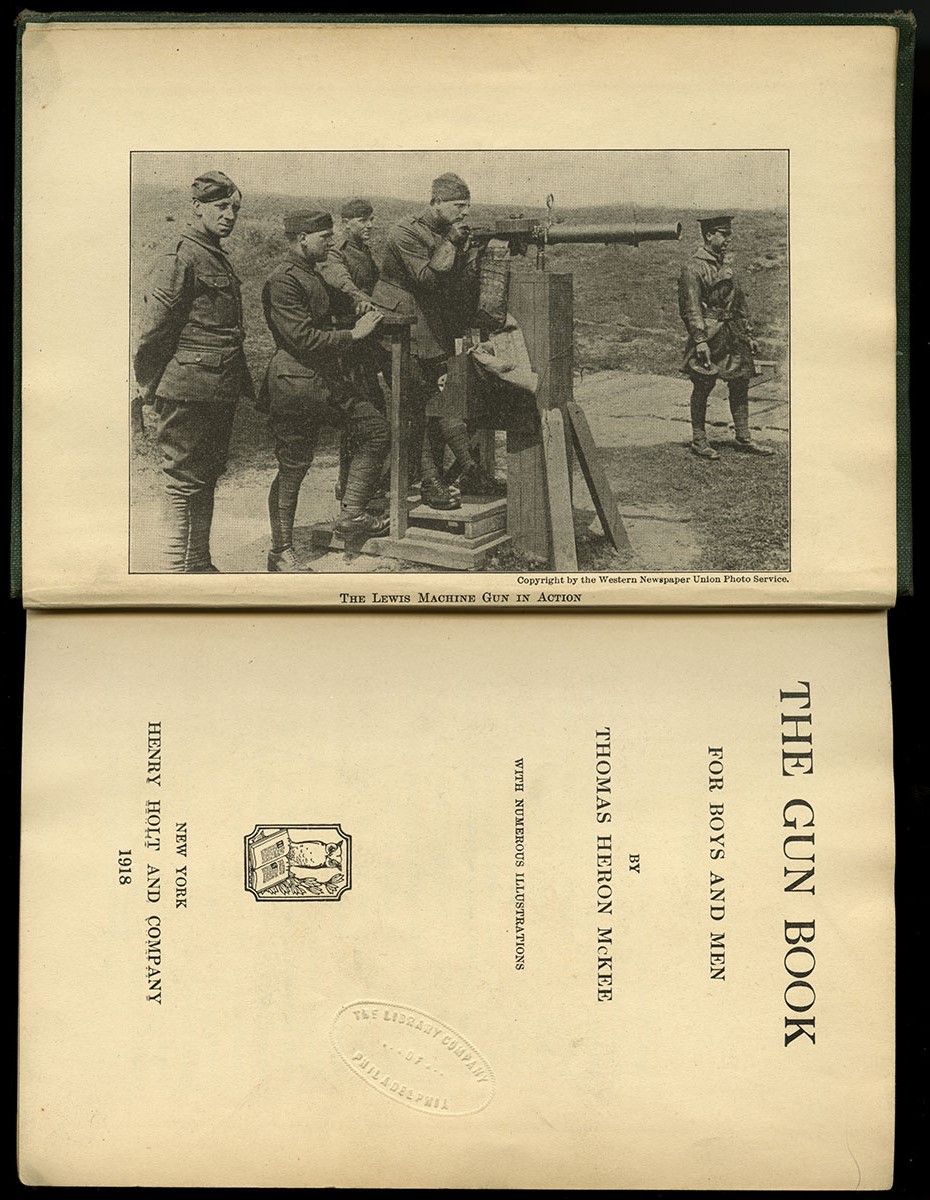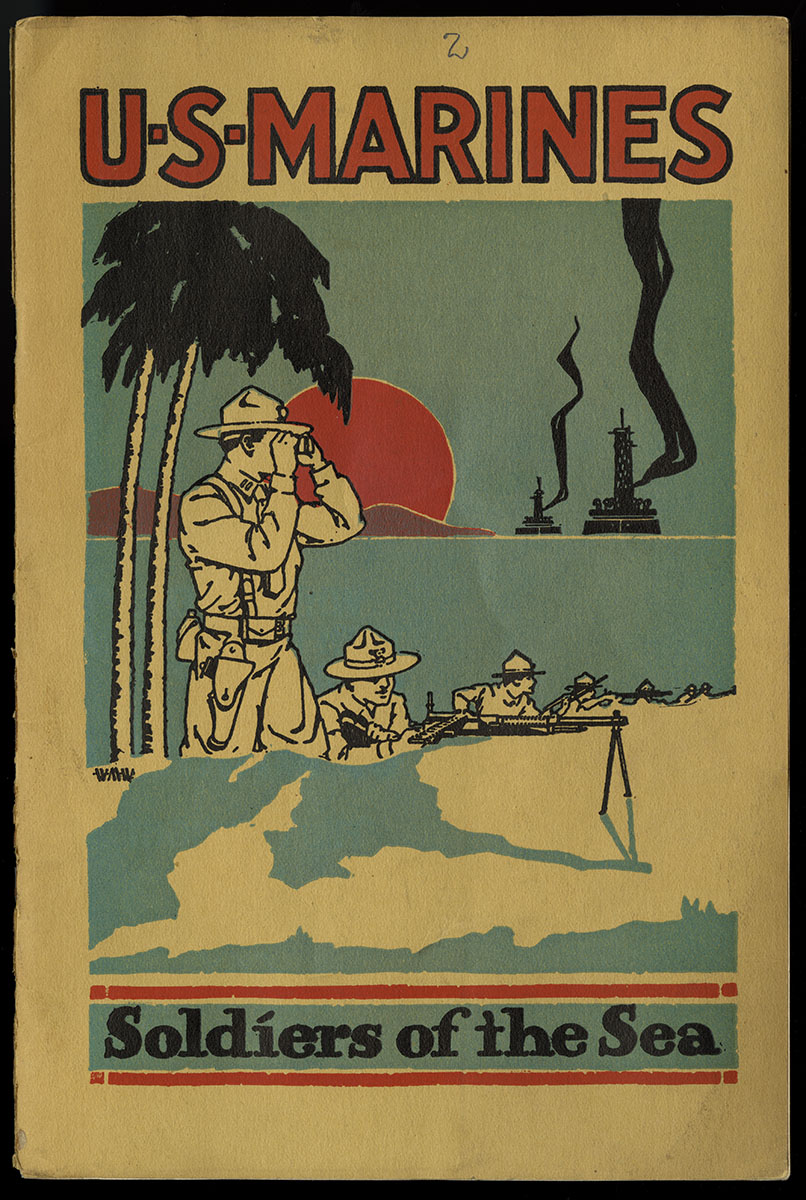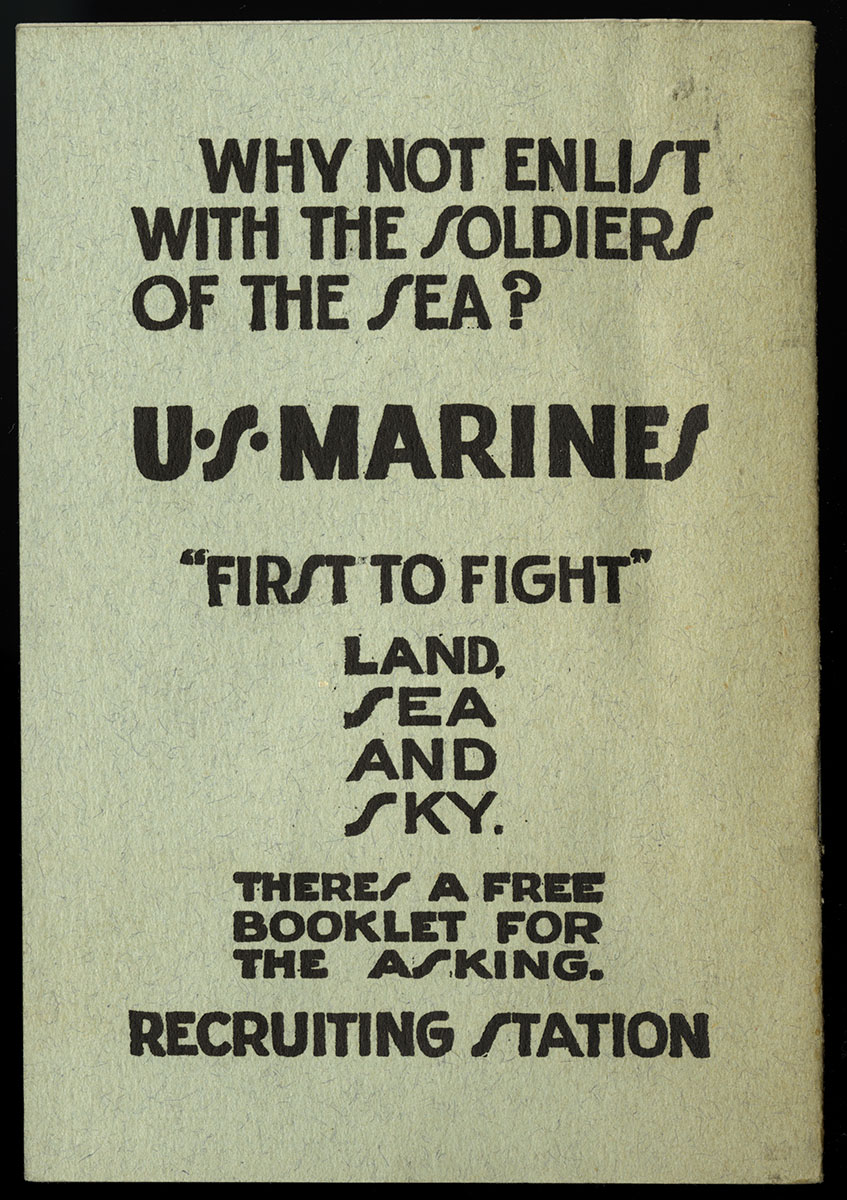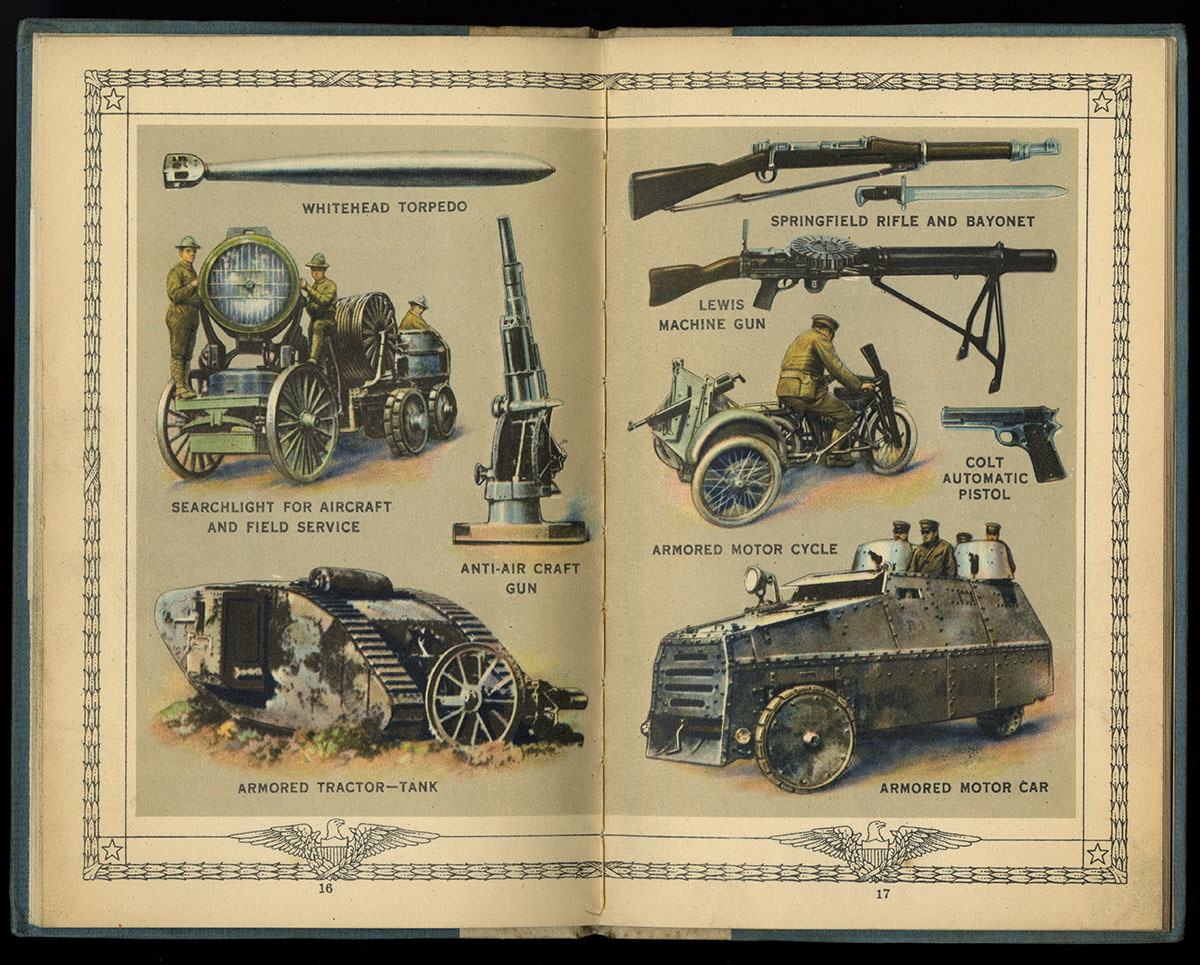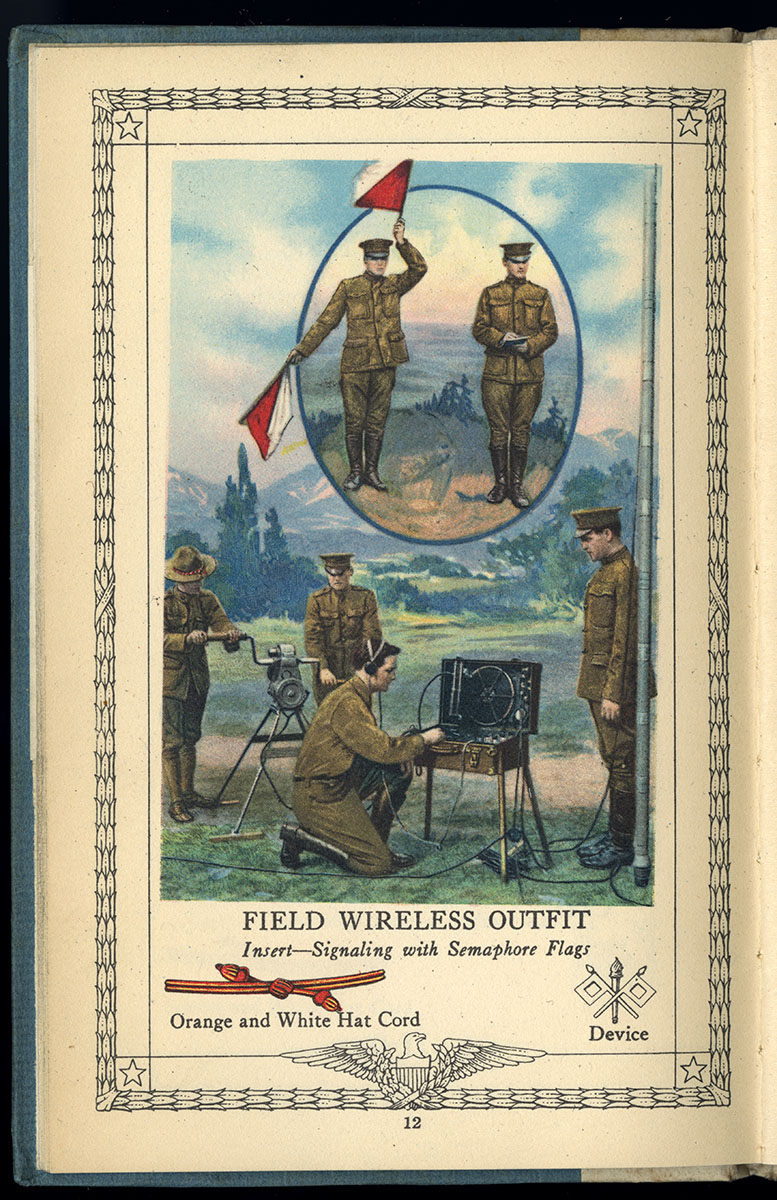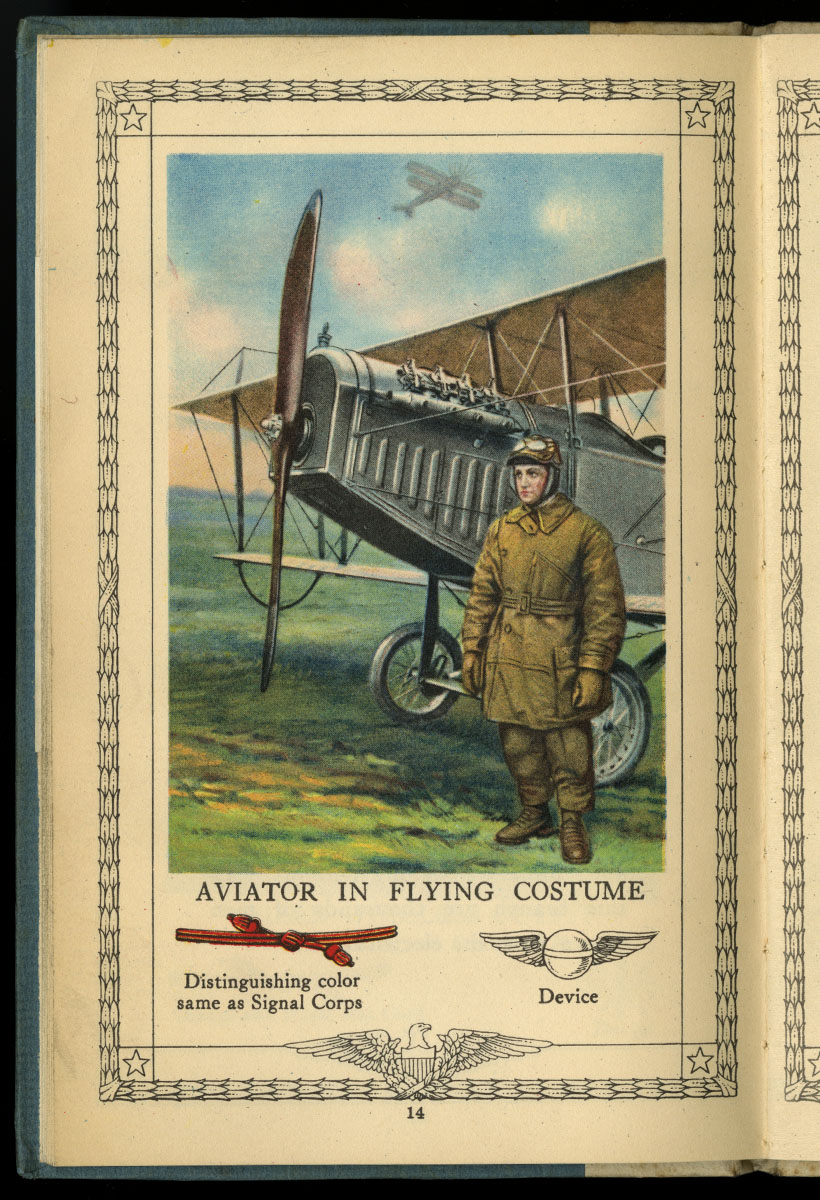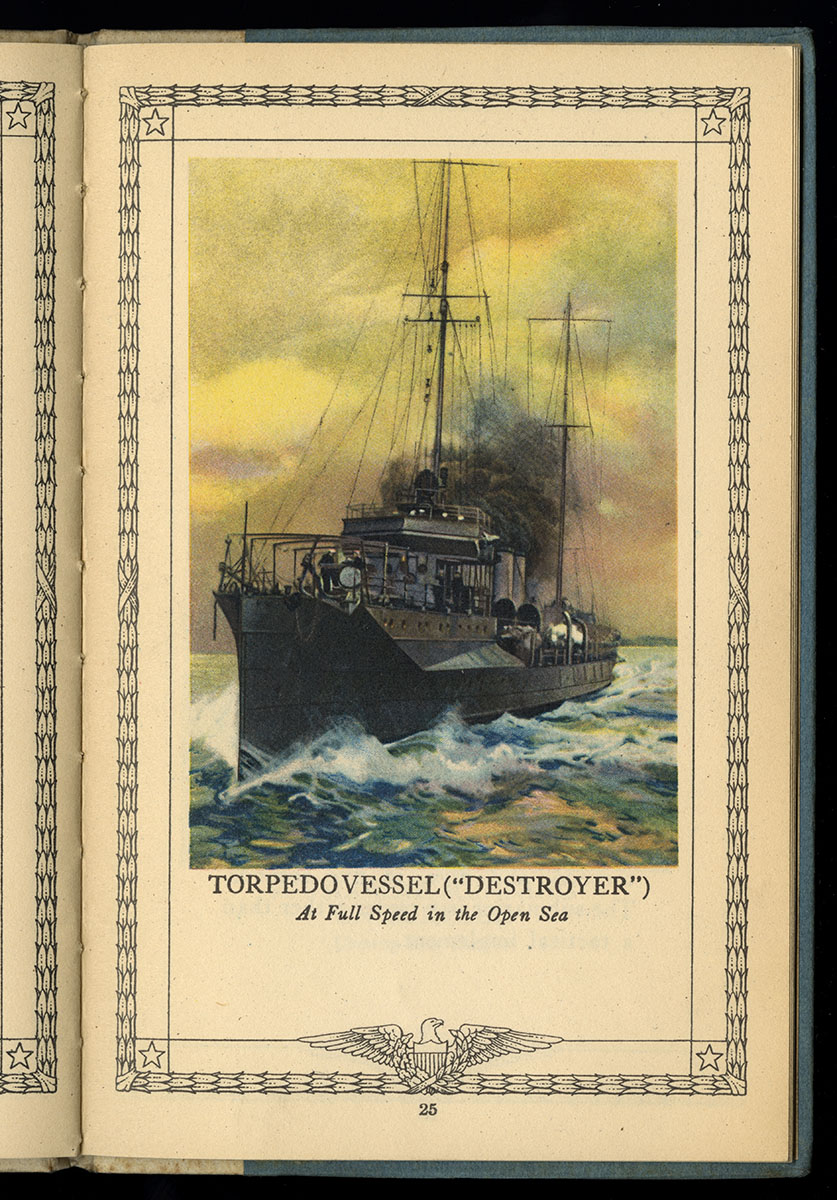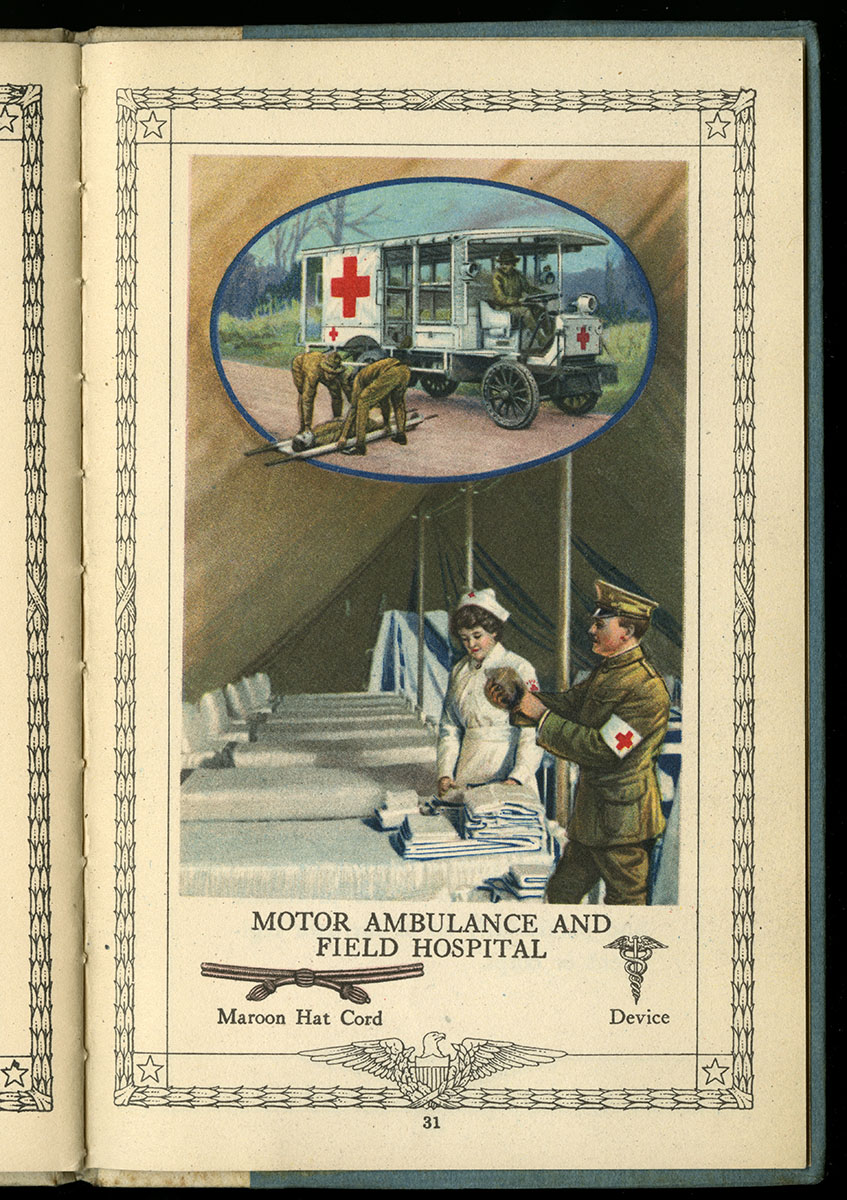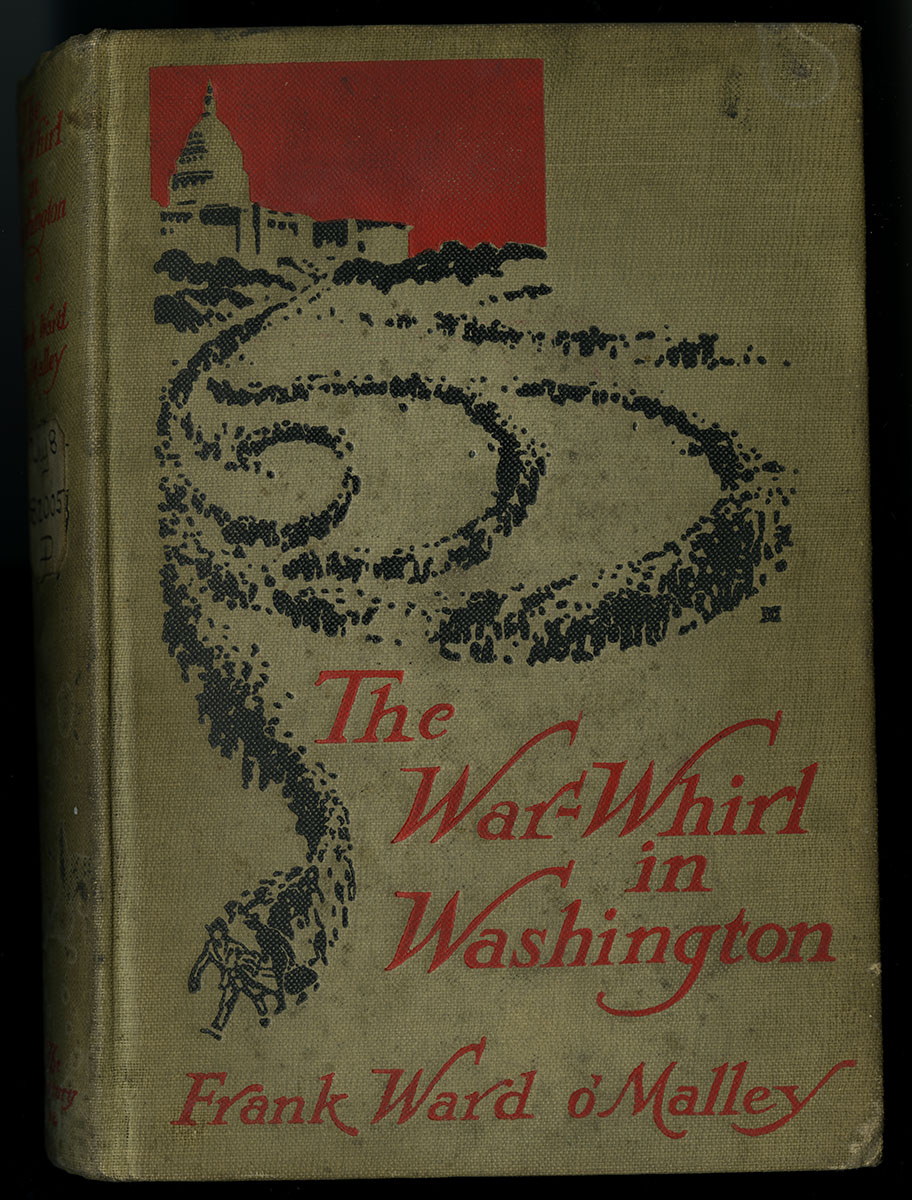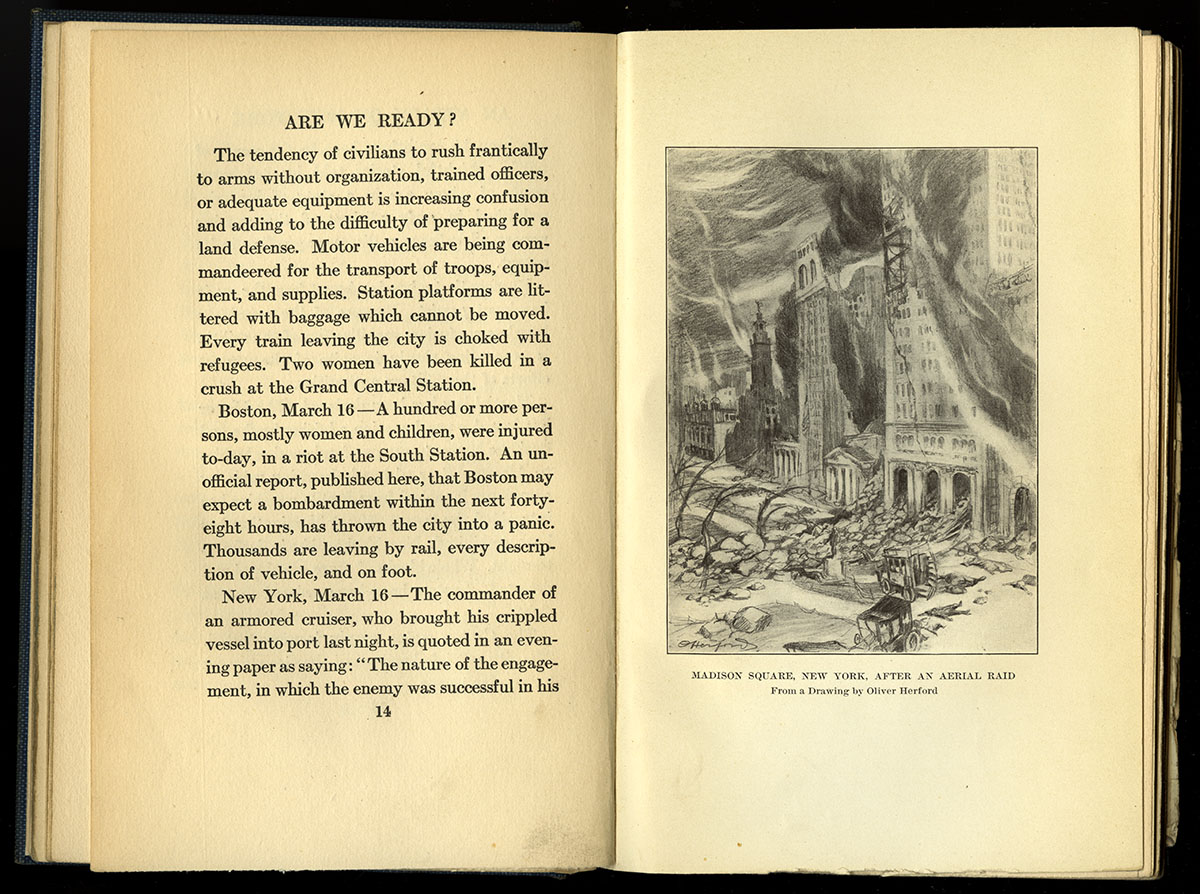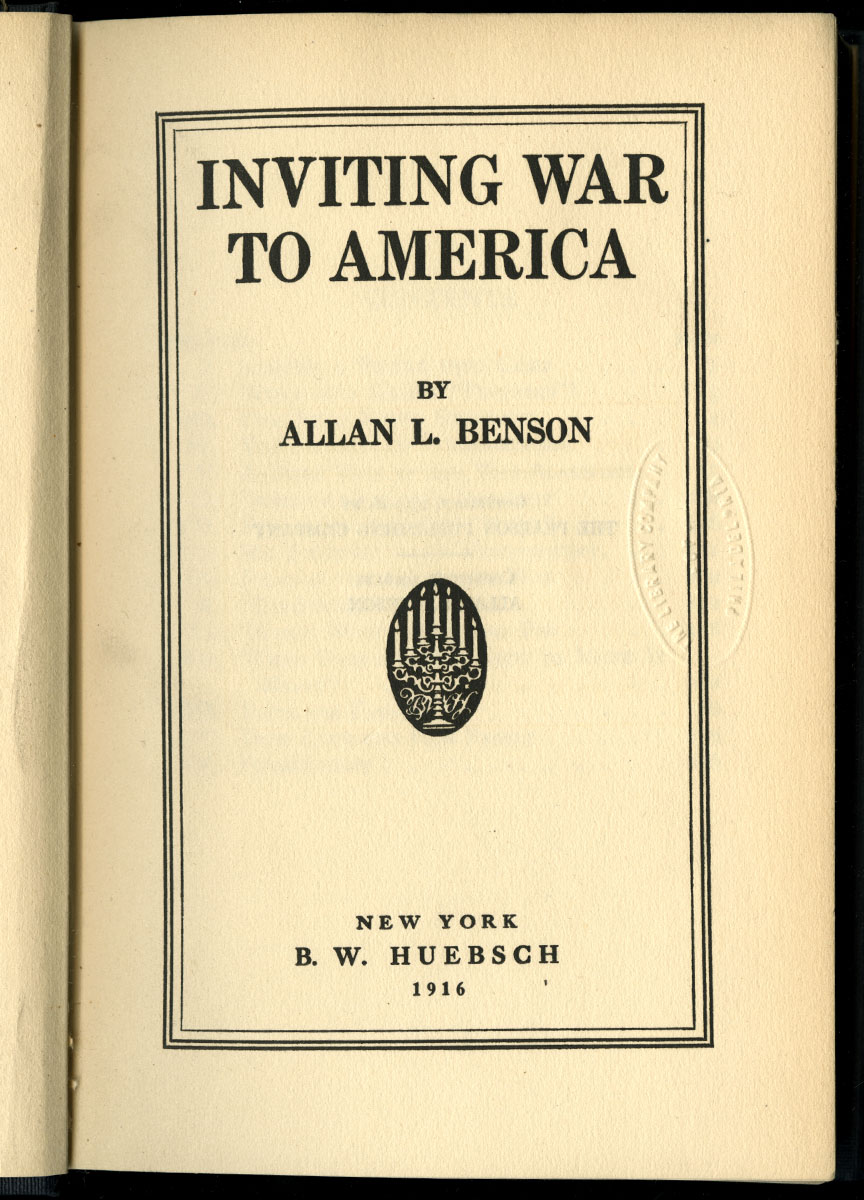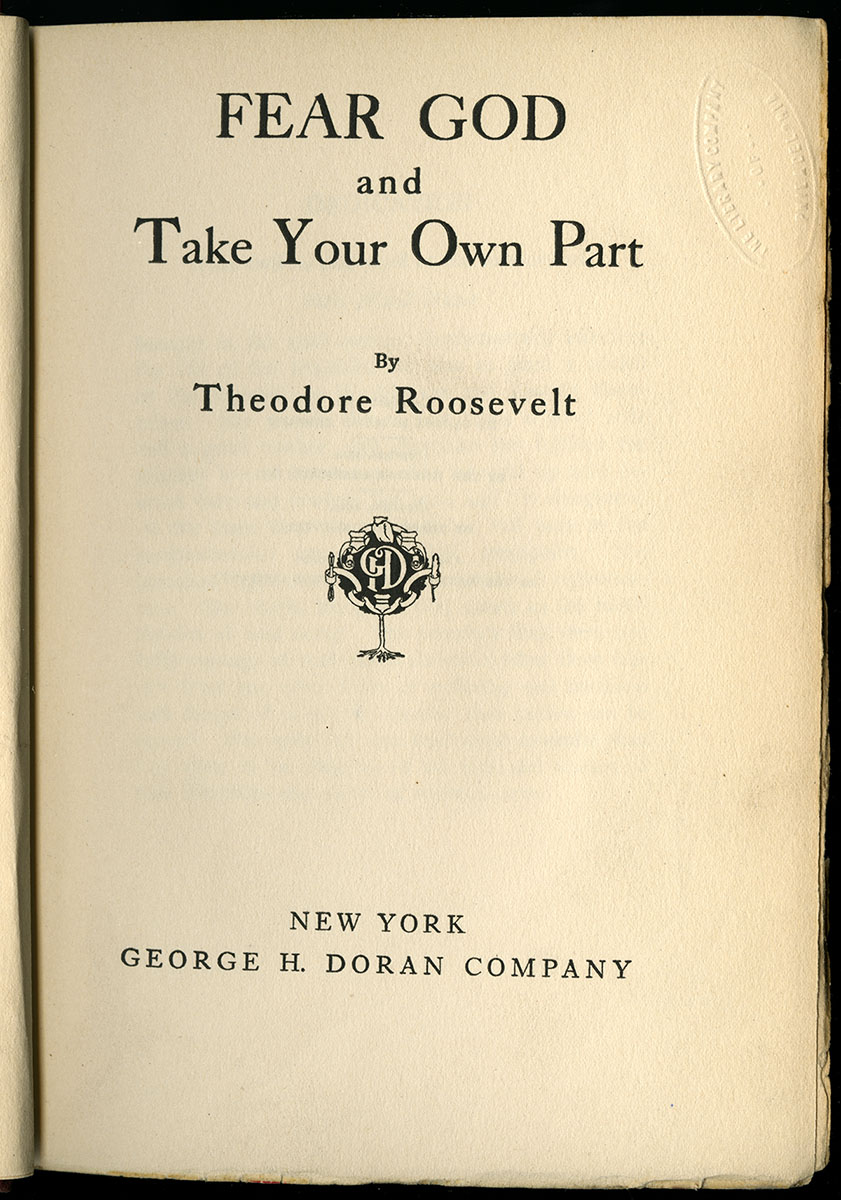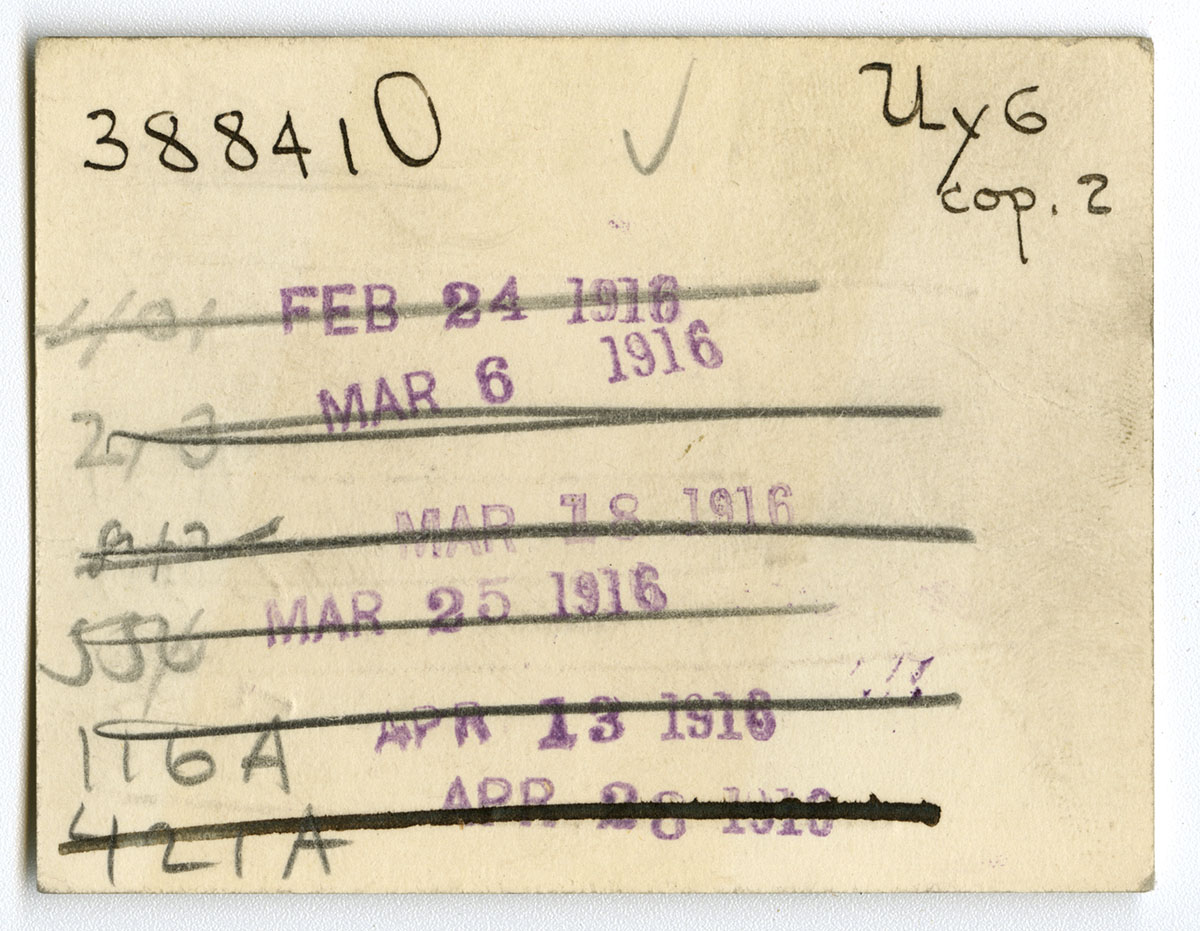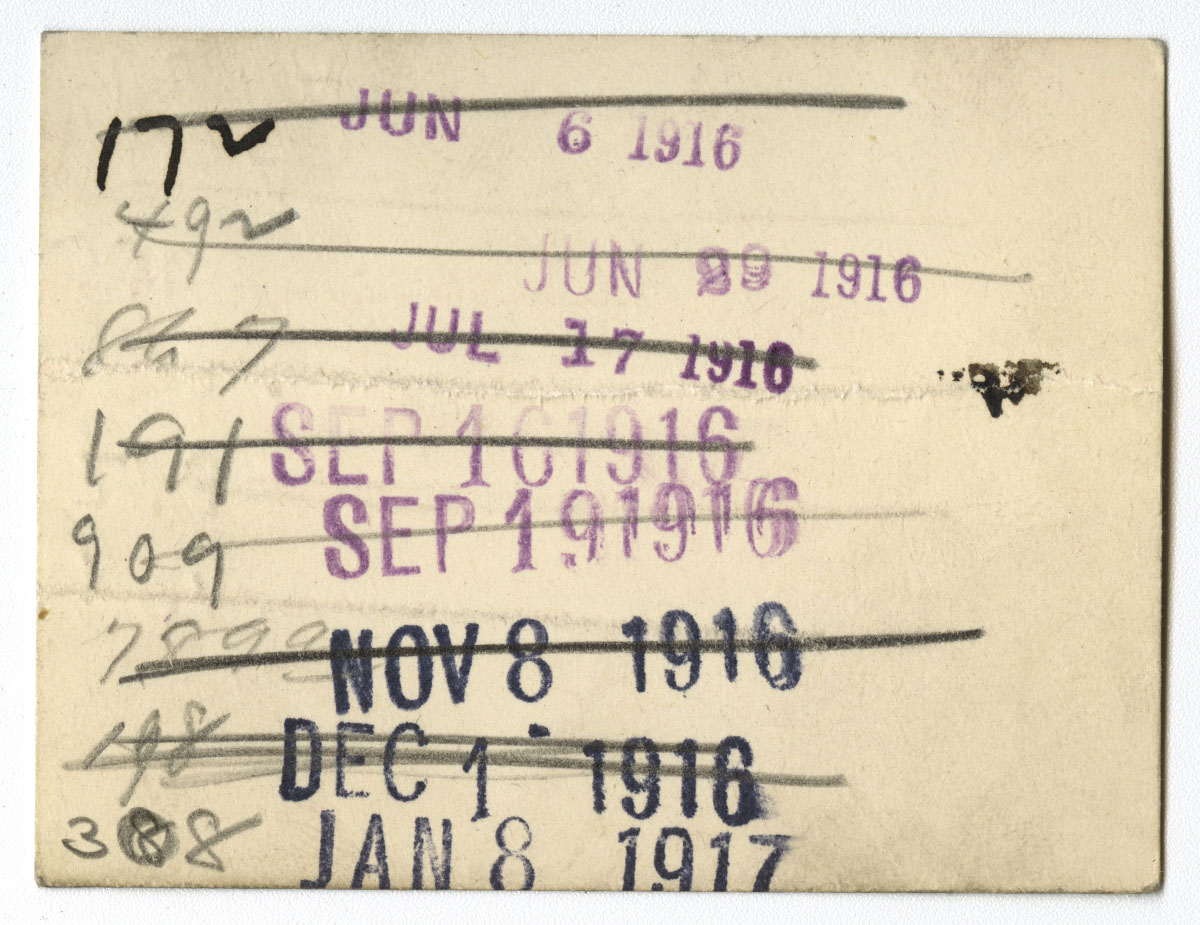Books at the Library Company
Section 2
The Library Company has always been a center of learning. When war exploded in Europe, Philadelphians came here to find information. These books represent a sample of what people read at the Library. They include books about the military, descriptions of what was happening in Europe by eyewitnesses, and many books questioning what part America should play. Americans debated whether they should stay neutral or intervene and join the war, and the Library acquired books from both points of view. Eventually, the United States did enter the war in April 1917.
Rand McNally War Map of the North Sea & English Channel (Chicago & New York, 1918).
This map has been in the Library Company’s collection since the war years. Pinholes in the map’s corners indicate that it probably hung on the Library’s wall providing information about the progress of the war to interested readers.
Cornélis De Witt Willcox, A French-English Military Technical Dictionary (Washington, 1917). Gift of Superintendent of Documents.
Trenches, gas, machine guns, airplanes, tanks. The war introduced new technology and with that new words, which needed to be translated into different languages. This book includes useful military terms and slang not found in a typical French-English dictionary.
Thomas Heron McKee, The Gun Book for Boys and Men (New York, 1918).
The author set out to present and explain some of the guns and bullets that American troops currently used and how these new weapons changed warfare. The Lewis machine gun, pictured here, could fire seven hundred and fifty rounds a minute.
United States Marine Corps, U.S. Marines: Duties, Experiences, Opportunities, Pay (New York, 1917).
Recruitment pamphlets attempted to entice enlistees with benefits, such as travel and education. “The life of the Marine offers opportunities that appeal to the man who desires to see foreign countries and satisfy his spirit of adventure.”
The Prudential Insurance Company of America, The Army and the Navy of the United States of America (Newark, N.J., 1917). Gift of Forrest F. Dryden.
This colorful booklet illustrates the different branches of the military as well as some of the new machinery and ships Americans operated.
Frank Ward O’Malley, The War-Whirl in Washington (New York, 1918).
This humorous book was quite popular with Library Company members. The New York Sun reporter journeyed to Washington, D.C. and described all of the different characters he encountered, such as bureaucrats, war profiteers, and draft dodgers.
Howard Wheeler, Are We Ready? (Boston, 1915).
Wheeler illustrated his concerns about the need for preparedness by detailing a hypothetical scenario where a foreign power attacked New York City. America did not have enough troops or guns to defend its coastline. The terror of modern warfare with bombs falling from airplanes, shelling, and poison gas, shocked Americans.
Allan L. Benson, Inviting War to America (New York, 1916).
Benson, who ran for President in 1916 as the Socialist Party candidate, campaigned for America to stay neutral. He decried “preparedness” as a guise for manufacturers and bankers to profit from a buildup of the military. He also criticized the hypocrisy in denouncing German militarism while advocating American militarism.
Theodore Roosevelt, Fear God and Take Your Own Part (New York, 1916).
Roosevelt, the chief proponent of the preparedness movement, advocated for the United States to increase its military defenses. He believed universal service to be democratic, like paying taxes. He condemned President Woodrow Wilson’s inaction after the sinking of the Lusitania and the German invasion of Belgium. This is one of several copies that the Library Company owned, and it was checked out often.


